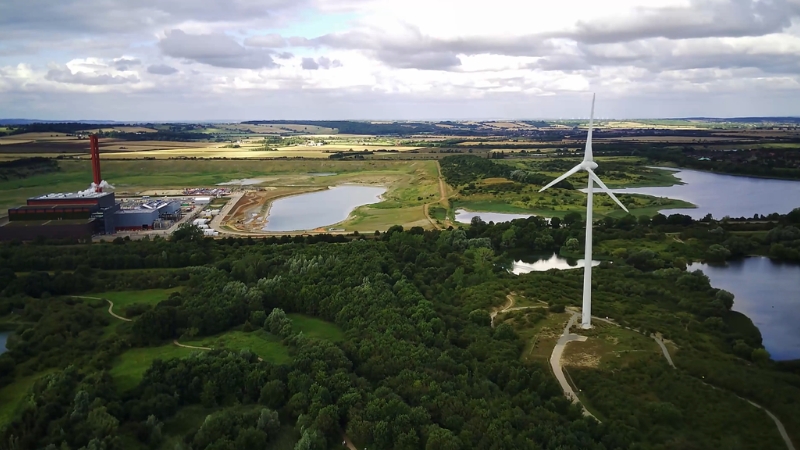The European Union has made no secret of its ambition to lead the global fight against climate change.
As part of this strategy, the Horizon Europe programme stands as one of the most comprehensive research and innovation funding initiatives ever created.
With a staggering €95.5 billion budget allocated for the 2021–2027 period, Horizon Europe offers researchers unparalleled opportunities to contribute to global climate goals, sustainable development, and technological innovation.
Numbers, Scope, and Vision
View this post on Instagram
Horizon Europe is not just a funding pot—it’s the EU’s flagship framework programme for research and innovation, following on from its predecessor, Horizon 2020.
Its total indicative budget of €95.5 billion, updated following the Multiannual Financial Framework Midterm Review (MTR), positions it as the largest EU programme ever for research and innovation.
Its structure is built to facilitate collaboration, foster cutting-edge technological advances, and contribute to global challenges, particularly climate change.
Here’s a breakdown of the budget and structure:
Component
Purpose
Budget (€ billion)
Excellent Science
Strengthening the EU’s scientific foundations
€25.8
Global Challenges & European Industrial Competitiveness
Addressing societal challenges and promoting competitiveness
€53.5
Innovative Europe
Enhancing Europe’s innovation capacity
€13.6
Widening Participation & Strengthening the European Research Area
Promoting inclusivity and capacity building
€3.4
A significant proportion of this funding is aimed at supporting climate-related research, spanning climate science, clean energy, sustainable transport, and resilient infrastructure.
Horizon Europe and Climate: The Core Mission

At its heart, Horizon Europe’s climate component focuses on mitigation and adaptation strategies, which means:
To translate these goals into action, Cluster 5: Climate, Energy, and Mobility was established. This Cluster is designed to support Europe’s Green Deal objectives and accelerate the twin green and digital transitions.
Cluster 5 Funding Highlights
As of the 2025 Work Programme, Horizon Europe’s Cluster 5 has made available over €636.6 million to fund new climate, energy, and mobility research projects, according to CINEA. Here’s a table summarising the main calls:
Call ID
Focus Area
Budget (€ million)
Deadline
HORIZON-CL5-2025-02
Cross-sectoral solutions for climate transition
€274.0
02/09/2025
HORIZON-CL5-2025-04
Clean and competitive solutions for all transport modes
€174.1
04/09/2025
HORIZON-CL5-2025-06
Climate sciences & transformation towards neutrality
€139.5
24/09/2025
HORIZON-CL5-2025-01-Two-Stage
Sustainable, secure, competitive energy supply
€24.0
02/09/2025 & 31/03/2026
HORIZON-CL5-2025-05-Two-Stage
Climate science: transformative solutions
€18.0
04/09/2025 & 31/03/2026
HORIZON-CL5-2025-03-Two-Stage
Resilient transport & smart mobility
€7.0
04/09/2025 & 14/04/2026
These calls represent a massive opportunity for researchers working on climate mitigation, adaptation technologies, renewable energy systems, and sustainable transport solutions.
Key Features Researchers Should Know

Open Science Policy
Horizon Europe is reshaping how research outputs are shared and utilised. Under this programme, mandatory open access to all publications ensures that scientific knowledge is freely available to the global community.
This means that any research outputs funded by Horizon Europe must be published in open-access journals or repositories, including preprints and peer-reviewed versions.
Moreover, Horizon Europe introduces an emphasis on open research data. Researchers are encouraged—and often required—to share the data generated through their projects in FAIR-compliant (Findable, Accessible, Interoperable, Reusable) data repositories.
The open data policy extends to metadata, software, and digital research outputs, promoting broader accessibility and fostering interdisciplinary collaboration.
In numbers:
European Innovation Council (EIC)
The EIC is a flagship element of Horizon Europe, designed to nurture high-risk, high-reward innovations. Specifically, the EIC targets projects that might be too uncertain or disruptive for traditional investors, offering financial and advisory support.
For researchers in climate, energy, and mobility, this is a gateway to scaling up groundbreaking technologies.
Key details include:
- Total EIC budget (2021–2027): Approx. €10 billion.
- Allocation for SMEs: Around 70% of this budget is directed towards Small and Medium-sized Enterprises (SMEs), with a strong focus on startups and spin-offs.
- Instruments:
- EIC Pathfinder: Supports early-stage research for radical new technologies (grant funding of up to €4 million per project).
- EIC Transition: Bridges the gap from lab results to market-ready innovations (funding of up to €2.5 million).
- EIC Accelerator: Provides blended finance (grant + equity) to help scale up market-ready innovations (grants of up to €2.5 million and equity up to €15 million).
For climate researchers, the EIC is especially relevant for innovations in:
Missions
Learn about five #EUfunded projects from the #HorizonEU #EUGreenDeal Call which aim to identify groups that are disproportionately affected by EU Green Deal policies and develop new initiatives to support & include them 👉 https://t.co/qGSl3K3qxm
— Horizon Europe 🇪🇺 (@HorizonEU) October 17, 2024
Horizon Europe introduces five mission areas, each designed to deliver bold, inspirational, and measurable goals within a specific timeframe.
These missions tackle some of the most urgent global challenges and are backed by dedicated funding, coordination mechanisms, and multi-stakeholder partnerships.
One of the most relevant missions for climate researchers is:
Adaptation to Climate Change: Supporting EU Regions and Communities
- Mission budget: Estimated €5 billion (across all supporting projects and actions).
- Goal: Prepare Europe to deal with climate change impacts by 2030 through:
- Developing and deploying adaptation solutions.
- Enhancing resilience in vulnerable regions.
- Integrating nature-based solutions (NBS) into urban and rural planning.
- Key target: At least 150 climate-resilient regions and communities by 2030.
The other missions with indirect climate links are:
Integrated Synergies and Policy Alignment
@europeanparliament Our planet. Our home. Our responsibility 🌍❤️ The Green Deal is the EU’s answer to the ongoing climate crisis. It aims to make the EU climate-neutral by 2050, becoming the first continent to remove as many CO2 emissions as it produces. And in 2021 Parliament adopted the EU Climate Law which made the targets of Green Deal legally binding. Head to our website to learn more about the European Parliaments efforts to fight climate change. #MotherEarth #InternationalMotherEarthDay ♬ original sound – alexandra
Horizon Europe is more than a funding mechanism, it’s a strategic tool to align with EU-wide policies like the European Green Deal, Fit for 55, and Climate Law.
Projects are expected to show clear links to these frameworks, especially in areas such as:
Cross-cutting synergies with other programmes (e.g., Innovation Fund, Digital Europe, CEF Energy/Transport) are highly encouraged to maximize impact and resource efficiency.
Funding Impact
To put the scale of Horizon Europe’s support into perspective:
Why Horizon Europe Matters for Climate Researchers

Climate change is no longer a future concern—it’s an immediate global challenge.
The EU recognises this urgency, evident in its decision to allocate a minimum of 35% of the Horizon Europe budget to climate-related actions. This translates to over €33 billion for climate projects alone.
Moreover, Horizon Europe encourages synergies with other EU programmes, including:
- Innovation Fund: Supports large-scale demonstration of innovative low-carbon technologies.
- CEF Energy & Transport: Focused on infrastructure for energy and mobility.
- European Green Deal: A roadmap for a sustainable economy.
Step-by-Step Guide to Applying for Horizon Europe Climate Funding
- Identify the Right Call – Visit the Funding & Tenders Portal, browse the Work Programme, and pinpoint calls that align with your research. Cluster 5 covers diverse topics, from decarbonization to smart mobility.
- Form a Strong Consortium – Typically, projects require at least three independent legal entities from different EU or associated countries. Build partnerships with academia, industry, and public stakeholders.
- Prepare a Comprehensive Proposal – Include clear objectives, methodology, expected impacts, budget breakdown, and commitment to open science and gender balance. Proposals should highlight alignment with EU policy goals.
- Submit via the Portal – Deadlines are strict. Ensure all documents are uploaded in the correct format. Evaluation results are typically communicated within 5 months, with grant agreements signed in 8 months.
Featured Success Stories: Climate Research in Action
- CLIMAS Project: Empowering citizens for climate action through community engagement and innovative technologies.
- BlueMissionMed: Pioneering efforts to restore the Mediterranean Sea, focusing on climate resilience and marine ecosystems.
- BeyondEPICA: A groundbreaking ice-core project studying ancient climate data to predict future trends.
These projects demonstrate the transformative potential of Horizon Europe funding in driving climate research and action.
Tips for Success: How Researchers Can Stand Out
The climate and nature crises are interconnected
Rising greenhouse gas emissions have a devastating impact on climate, on nature & on our lives
With the #EUGreenDeal, we want to ensure no net emissions & a toxic-free Europe with #ZeroPollution by 2050 👉 https://t.co/xAt0xZxgmV pic.twitter.com/Ytjniz995o
— EU Environment (@EU_ENV) February 20, 2024
- Leverage Interdisciplinary Expertise: Combine natural sciences with social sciences, policy, and industry knowledge.
- Emphasize Impact: Clearly articulate how your research addresses EU Green Deal goals, including net-zero emissions by 2050.
- Prioritize Open Science and Gender Equality: These are not optional—they are evaluation criteria.
- Prepare Early: Begin drafting proposals and forming partnerships well ahead of deadlines.
Final Thoughts
For climate-focused researchers, Horizon Europe is more than just funding, it’s a platform to shape the future. Its scale, structure, and commitment to global sustainability goals offer a once-in-a-generation opportunity to make a lasting impact.
With over €630 million available in 2025 for climate, energy, and mobility, and an overall climate budget exceeding €33 billion, the programme is ready to support projects that can transform our world.

